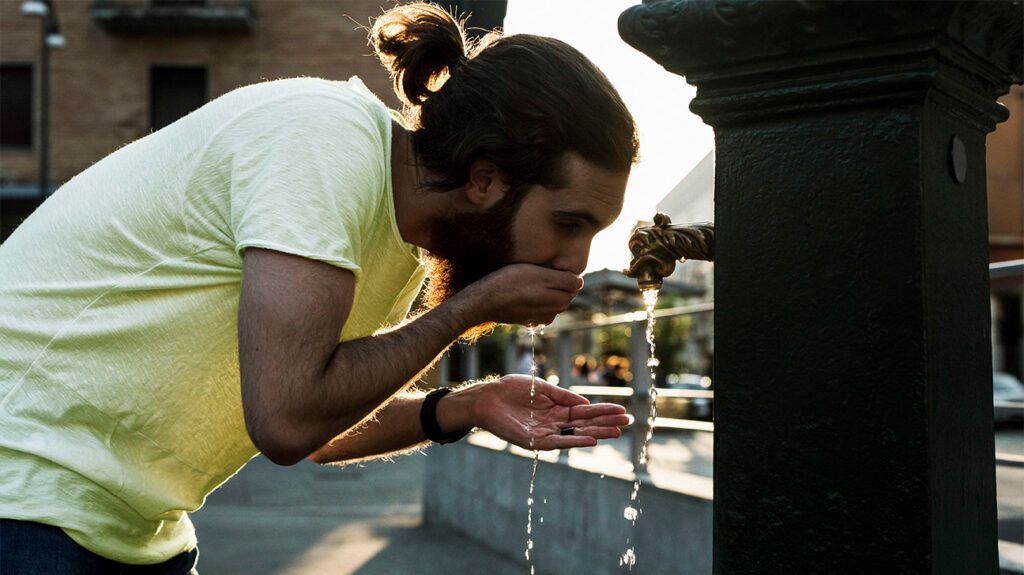Dehydration may sometimes lead to feelings of anxiety and other mood-related symptoms. Other signs of dehydration may include feeling thirsty, a dry mouth, and dizziness.
Dehydration is a condition in which the body has lost fluids and no longer has enough to work properly. Some research suggests a relationship between dehydration and anxiety.
A person can generally rectify their dehydration by taking in more fluids. Rehydrating may help resolve anxiety due to dehydration. However, some people may benefit from treatments for anxiety.
This article examines the relationship between dehydration and anxiety, the signs of dehydration, and how to prevent it and anxiety from occurring.

Some research suggests an association between feelings of anxiety and dehydration or not drinking enough fluids.
For example, a
These studies suggest there is a relationship between hydration levels and anxiety, but more research is necessary to confirm whether or not one causes the other.
One possible theory is that dehydration could lead to increased levels of the stress hormone cortisol in the body. Research
Dehydration may also lead to a rise in the levels of certain neurotransmitters, such as glutamate, which help influence mood regulation.
In addition to anxiety,
Severe cases of dehydration
If anyone is dehydrated and experiences these symptoms, they need to seek medical help.
When a person is dehydrated, they may experience various physical and mental symptoms.
In addition to the symptoms above,
- feeling thirsty
- dry mouth and lips
- dry skin
- sweating and urinating less
- dizziness
- dark urine
- weakness
- headache
- muscle cramps
The longer a person is dehydrated, the more severe their symptoms can become. For example, they may develop low blood pressure.
Learn more about the symptoms of dehydration.
People with dehydration may start to feel better after drinking lots of water. Some research within a
Sports drinks may also help someone rehydrate, as these replace any electrolytes that they may have lost.
Severe cases of dehydration
If someone is feeling particularly anxious, the
- breathing exercises, such as box breathing
- guided imagery
- progressive muscle relaxation techniques
- mindfulness
The “333 rule” is one simple mindfulness technique that may help with anxiety. It involves three steps:
- Name three things you can see.
- Recognize three things you can hear.
- Move three parts of your body or touch three different things.
The way to prevent dehydration is to drink enough fluids.
There is no single ideal amount of fluid for people to drink each day — everyone has different needs. People can help guide themselves through how thirsty they feel. However, they also need to consider that certain situations require more fluid. These include:
- when the weather is hot
- when working or exercising outside
- when ill, particularly with an illness that causes fluid loss such as diarrhea
Certain groups of people are more prone to dehydration than others. These include:
- older adults
- young children and infants
- people with chronic conditions or medication that cause them to sweat or urinate more
- people working or exercising outside in hot weather
These groups and their caregivers also need to be particularly mindful of how much water they drink.
Learn how much water to drink each day.
Preventing anxiety
Practicing self-care can help support a person’s mental health and may help them feel less anxious. Useful
- getting enough quality sleep
- following a balanced diet
- consuming caffeine and alcohol in moderation
- exercising regularly
- taking part in a relaxing hobby
- connecting regularly with other people
- practicing positive thinking
Learn more about how to improve mental health.
Dehydration may lead a person to feel anxious. It could also affect people’s moods in other ways.
Researchers are currently uncertain as to what is behind the relationship between dehydration and anxiety. Some potential explanations involve changing levels of hormones and neurotransmitters. However, further research is necessary to understand this fully.
In many cases, drinking enough water will help resolve dehydration and may also help raise a person’s mood.
There are several things people can try at home to relieve and prevent anxious feelings. These approaches include breathing and muscle relaxation exercises.
